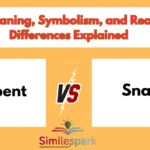Ever stumbled over whether to say I run or I ran? Don’t worry—you’re not alone. Even native English speakers pause before choosing between these two.
Both words come from the same root verb, yet they serve different grammatical roles.
In this guide, we’ll explore run and ran in every tense, dive into their irregular nature, and show
you how to master them with real-world examples, charts, idioms, and quick memory tricks. By the end, you’ll never hesitate again when using run or ran.
🏁 Introduction: Why “Run” and “Ran” Confuse So Many Learners
English verbs can feel like a maze—especially irregular ones. The verb run is one of the most common and most misused examples. People often say things like:
❌ “I have ran five miles today.”
✅ “I have run five miles today.”
That one small change—ran vs. run—can make a huge difference in grammatical correctness.
In this guide, you’ll learn:
- When to use run and when to use ran
- How to conjugate run correctly in all tenses
- Common errors (and how to fix them fast)
- Idioms and real-world examples that make learning fun
Let’s run through it step by step.
⚙️ The Core Difference: ‘Run’ vs. ‘Ran’ in Simple Terms
The simplest way to understand the difference:
| Verb Form | Tense | Example |
|---|---|---|
| Run | Base form / Past participle | “I run every day.” / “I have run today.” |
| Ran | Simple past | “I ran yesterday.” |
In short:
- Use run when talking about the present or when using helping verbs (have, has, had).
- Use ran only when referring to a completed action in the past.
💡 Quick Trick:
If the action already happened, use ran.
If it’s still happening or recently finished, use run.
📖 How ‘Run’ Works in the Present Tense
The word run shows up in multiple present tense forms. Let’s break them down.
Simple Present Tense: Everyday Actions
Use run when describing things you do regularly or facts that don’t change.
Examples:
- “I run every morning before breakfast.”
- “They run a family business downtown.”
- “Water runs downhill.”
Formula:
Subject + Base Verb (run) + Object/Complement
| Subject | Verb | Example |
|---|---|---|
| I/You/We/They | run | “We run daily.” |
| He/She/It | runs | “She runs fast.” |
✅ Note: The only change happens with he/she/it, where s is added.
Present Continuous: Actions Happening Now
When something is happening right now, use am/is/are running.
Examples:
- “She is running late for work.”
- “We are running a marketing campaign.”
- “I’m running a quick test.”
💡 Grammar Tip:
Add “-ing” to show ongoing action.
Formula:
Subject + am/is/are + running + object
Present Perfect: The Tricky One
This is where most mistakes happen. Many learners mistakenly say have ran. The correct form is have run.
| Correct | Incorrect | Why |
|---|---|---|
| I have run | I have ran | Run is the past participle |
| She has run | She has ran | Same reason |
| They have run | They have ran | Always use run after have/has/had |
Examples:
- ✅ “I have run five miles today.”
- ❌ “I have ran five miles today.”
Memory Tip:
If there’s a have/has/had, always use run, never ran.
⏳ How ‘Ran’ Works in the Past Tense
Simple Past: Completed Actions
Use ran to describe something that already happened and finished.
Examples:
- “He ran a marathon last weekend.”
- “We ran out of time before the deadline.”
- “They ran from the storm.”
Formula:
Subject + ran + complement
🕓 Visual Timeline Example:
| Tense | Example | Time Reference |
|---|---|---|
| Present | “I run daily.” | Ongoing / Habitual |
| Past | “I ran yesterday.” | Completed action |
| Present Perfect | “I have run before.” | Past with present relevance |
🧩 Conjugating ‘Run’ Across All Tenses
Here’s the full conjugation of run across English tenses:
| Tense | Example |
|---|---|
| Present Simple | I run / He runs |
| Present Continuous | I am running |
| Present Perfect | I have run |
| Past Simple | I ran |
| Past Continuous | I was running |
| Past Perfect | I had run |
| Future Simple | I will run |
| Future Continuous | I will be running |
| Future Perfect | I will have run |
Notice how run only changes once—to ran—in the simple past tense. Otherwise, run stays the same.
🤔 Common Grammar Mistakes (and How to Fix Them Fast)
Here are some of the most frequent slip-ups learners make:
| Mistake | Correction | Explanation |
|---|---|---|
| I have ran | I have run | “Have” takes a past participle, not past tense. |
| She had ran | She had run | Same rule applies to “had.” |
| I will ran | I will run | Future tense always uses base form. |
| I been ran | I have been running | Use present perfect continuous for ongoing past actions. |
Quick Fix Tips:
- Use ran alone for past events.
- Use run with helpers like have/has/had.
- Use running for continuous tenses.
Example Corrections:
❌ “We have ran together before.”
✅ “We have run together before.”
❌ “I will ran tomorrow.”
✅ “I will run tomorrow.”
💬 Idioms and Expressions with ‘Run’ (and None with ‘Ran’)
The word run shows up in tons of everyday idioms. You’ll rarely find idioms using ran. Here are a few popular ones:
| Idiom | Meaning | Example |
|---|---|---|
| Run into trouble | Face difficulties | “We ran into trouble with the design.” |
| Run errands | Do small tasks outside home | “I’m running errands all day.” |
| Run out of time | Have no time left | “We ran out of time before finishing.” |
| Run the show | Be in charge | “She runs the show at work.” |
| Run wild | Act freely or uncontrollably | “The kids ran wild during recess.” |
💡 Why “ran” isn’t used: Idioms form in the present base or continuous tense, so run fits naturally.
🧠 Why ‘Run’ Is Irregular — A Quick Linguistic Peek
The verb run comes from Old English “rinnan” or “irnan,” meaning to move quickly. Over centuries, English evolved, and many verbs dropped regular -ed endings.
That’s why we say:
- run → ran → run
Instead of: - run → runned → runned
It joins other irregular verbs like:
| Base | Past | Past Participle |
|---|---|---|
| begin | began | begun |
| go | went | gone |
| sing | sang | sung |
| run | ran | run |
These patterns don’t follow rules—they’re memorized through use.
Quote:
“English irregular verbs are like friends from childhood—unpredictable, but you remember them forever.”
📚 Run vs. Ran in Real Contexts
Everyday English
- “I run five miles every day.” → Regular habit
- “I ran five miles yesterday.” → Completed past action
In Writing and Literature
Writers use run and ran to create vivid imagery:
“She ran through the night, chased by the echoes of her past.”
In Spoken English
Native speakers rarely confuse them because the context makes the tense clear. For learners, context clues help a lot too.
Case Study Example:
Imagine you’re writing your diary:
“Today I ran two miles before breakfast.” (Past event)
“I run two miles every morning.” (Habit)
✍️ Writing Tips: How to Choose the Right Form Every Time
Here’s a quick decision guide to make sure you never get it wrong:
| Ask Yourself | Use This Form | Example |
|---|---|---|
| Is it happening now or regularly? | run | “I run daily.” |
| Did it happen in the past and finish? | ran | “I ran last night.” |
| Does it have have/has/had before it? | run | “I have run before.” |
| Is it in progress right now? | running | “I’m running late.” |
💡 Mnemonic:
“If it happened, it ran.”
“If it’s still true, it runs.”
🚨 Quick ‘Run’ vs. ‘Ran’ Quiz
Try these! Answers below.
- She ___ across the field yesterday.
- I have ___ ten kilometers today.
- They ___ their own business.
- He ___ out of excuses last week.
- We have ___ this test before.
Answers:
- ran
- run
- run
- ran
- run
📘 FAQs: Common Questions About “Run” and “Ran”
What is the difference between run and ran?
Run is the base or past participle form; ran is the simple past. Example: “I run daily” vs. “I ran yesterday.”
Can you use ran in the present tense?
No. Ran is strictly past tense. Use run for present.
Is it correct to say “have ran”?
No. Always say “have run.” Run is the correct past participle.
What are some idioms with run?
Common ones: run into trouble, run errands, run out of time, and run the show.
Why is run an irregular verb?
It’s irregular because it doesn’t follow the standard -ed pattern. Its past form is ran and past participle is run.
🎯 Conclusion: Run Ahead with Confidence
Now that you’ve mastered the difference between run and ran, you can spot (and fix) errors instantly. Remember:
- Run = present or past participle (used with have/has/had).
- Ran = simple past (used for finished actions).
Keep practicing through reading, writing, and conversation. The more you see run and ran used in context, the more natural they’ll feel.
Next time someone asks, “Should I say run or ran?”—you’ll be the grammar expert who knows the answer.










